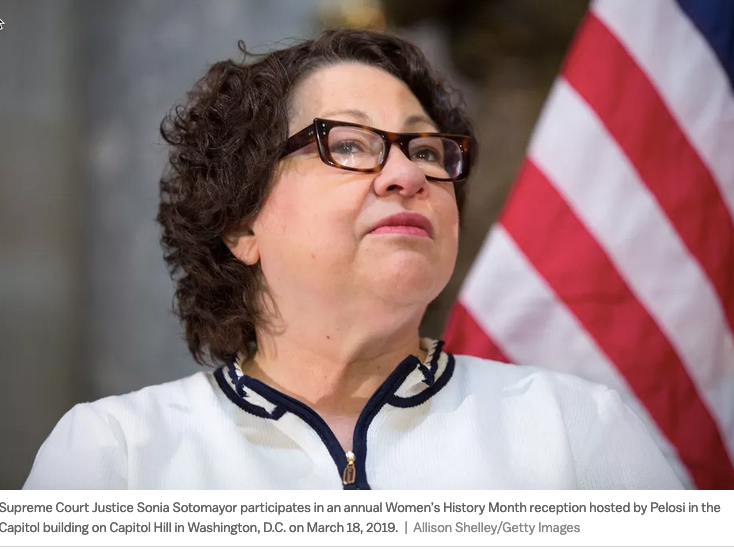Justice Sonia Sotomayor wrote a brief but pointed dissent Wednesday evening from a Supreme Court order that effectively locked nearly all Central American migrants out of the asylum process. Asylum allows foreign nationals who face certain forms of persecution to seek refuge in the United States.
The Court’s order is temporary, and it only allows the asylum ban to remain in effect while the case is working its way through the courts. It stays a lower court decision that blocked the ban. Though this litigation will continue to percolate in lower courts, other judges are likely to read the Supreme Court’s order as a sign that a majority of the justices will ultimately uphold the ban.
As is often the case with such temporary orders, there was no majority opinion — and thus no explanation of why the Court ruled the way it did or even how each member of the Court voted. We only know that Sotomayor voted against the stay, and that Justice Ruth Bader Ginsburg joined Sotomayor’s dissent.
The sharpest part of Sotomayor’s opinion may be its final paragraph, which accuses a majority of her colleagues of bypassing the Court’s ordinary procedures in order to bail out the Trump administration.
[G]ranting a stay pending appeal should be an “extraordinary” act. Unfortunately, it appears the Government has treated this exceptional mechanism as a new normal. Historically, the Government has made this kind of request rarely; now it does so reflexively. See, e.g., Vladeck, The Solicitor General and the Shadow Docket, 133 Harv. L. Rev. (forthcoming Nov. 2019). Not long ago, the Court resisted the shortcut the Government now invites. I regret that my colleagues have not exercised the same restraint here. I respectfully dissent.
To translate this paragraph a bit, a “stay pending appeal” is an order that suspends a lower court’s decision while the case is working its way through an appeals court. On Wednesday, the Supreme Court granted such a stay of a lower court order that blocked a Trump administration policy preventing most Central American migrants from seeking asylum.
As Sotomayor notes, the Supreme Court rarely granted such stays in the past, and for good reason. Because the Supreme Court is the final word on any legal dispute, it typically likes to hang back for a while as lower court judges wrestle with new legal questions. If a lower court hands down an erroneous order, and the Supreme Court does not take immediate action, then the erroneous order may remain in place for months. But a lower court decision will eventually work its way through the appeals process and can be reversed by the Supreme Court if it is wrong about the law.




